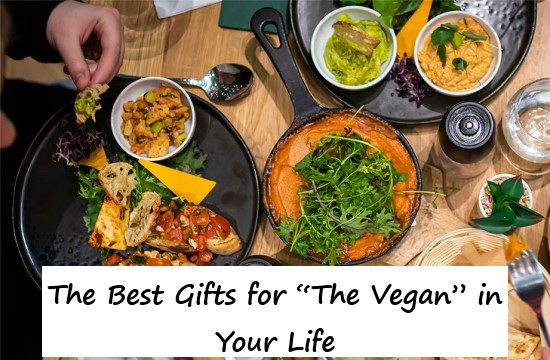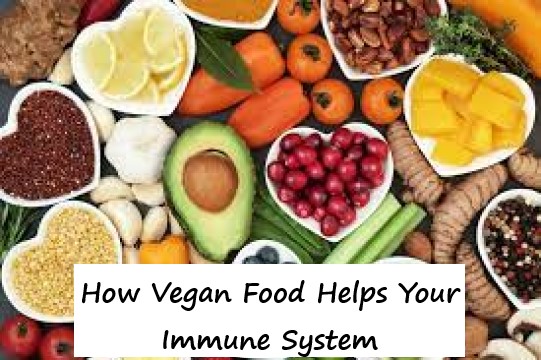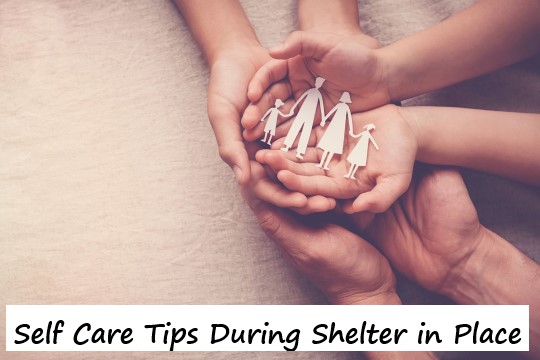What Is a Vegan Diet? Basics, Ethics, and Foods List

A vegan diet, or veganism, tends to omit animal products for ethical, health, or environmental reasons.
Once considered a niche diet, veganism has gone mainstream — so much so that the number of people following a vegan diet has increased by 350% in the last decade, according to research from the U.K.
By definition, veganism is a way of living in which people exclude, as much as possible, all forms of animal exploitation and cruelty.
At first glance, a vegan diet may seem complicated or overly restrictive. Many of my clients who are considering switching over to a vegan diet are initially worried about finding suitable vegan alternatives to their favorite meals.
Yet, most find that once they get a few basics down, the transition is less difficult than they initially expected.
As someone enjoying a plant-based diet myself, I’ve noticed more and more vegan options appearing on supermarket shelves and restaurant menus in the past couple of years.
I’ve even recently come across a vegan version of pastel de nata, one of my all-time favorite desserts.
In this https://thevegangarden.com/‘s article, I’ll outline what veganism is and share a few basics about foods to eat and avoid on a vegan diet.

What is veganism?
According to the Vegan Society, the term “vegan” was coined back in 1944 by a small group of vegetarians who broke away from the Leicester Vegetarian Society in England to form the Vegan Society.
In addition to refraining from eating meat, they chose not to consume dairy, eggs, or any other products of animal origin.
The term “vegan” was chosen from the combination of the first and last letters of “vegetarian.” By 1949, the first definition of veganism had been born. It has changed slightly over the years to become what it is known as today.
According to the latest definition from the Vegan Society, veganism is “a philosophy and way of living which seeks to exclude — as far as is possible and practicable — all forms of exploitation of, and cruelty to, animals for food, clothing, or any other purposes.”
Many people use the term “vegan” to refer exclusively to diet. However, by this latest definition, veganism extends beyond eating a plant-based diet.
Those who identify as vegans typically aim to exclude animal exploitation or cruelty in all aspects of their lives, including the clothes they wear, the cosmetics they use, and the leisure activities they take part in.
As a result, many vegans avoid purchasing wool coats, leather furniture, or down pillows and comforters. They may also opt to visit animal sanctuaries instead of going to zoos, the circus, or animal petting farms.
Why do people go vegan?
People generally choose to avoid animal products for one or more of the following reasons.
Ethics
Ethical vegans strongly believe that all creatures have a right to life and freedom.
They view all animals as conscious beings that, just like humans, wish to avoid pain and suffering.
Because of this, ethical vegans are opposed to killing an animal in order to eat its flesh or wear its fur or skin.
Vegans are also opposed to the psychological and physical stress that animals may endure as a result of modern farming practices — for instance, the small pens or cages that animals typically live in and rarely leave between their birth and slaughter.
However, for ethical vegans, this sentiment extends beyond the cruelty of modern farming practices.
That’s because vegans are opposed to consuming products that heavily rely on the killing of other animals — especially because alternatives are available.
This includes the slaughter of calves that are considered surplus in the dairy industry, or the culling of 1-day-old male chicks that is common in egg production.
Moreover, ethical vegans generally believe that animals’ milk, eggs, honey, silk, and wool are not for humans to exploit, regardless of the living conditions afforded to the exploited animals.
This is why ethical vegans remain opposed to drinking an animal’s milk, eating its eggs, or wearing its wool, even in cases where the animals are free-roaming or pasture-fed.
Health
Some people choose a vegan diet for its potential health benefits.
Diets high in meat — especially red meat — have been linked to cancer, heart disease, and type 2 diabetes.
On the other hand, plant-based diets have been linked to a lower risk of developing or prematurely dying from these diseases.
Lowering your intake of animal products in favor of more plant-based options may also improve your digestion and reduce your risk of Alzheimer’s disease.
A vegan diet can also help minimize the side effects linked to the antibiotics and hormones used in modern animal agriculture.
Finally, vegan diets appear to be especially effective at helping people lose unwanted weight. Several studies link a vegan diet to a lower likelihood of obesity.
However, if you’re on a vegan diet, you may consume less of certain nutrients. That’s why planning is especially important.
Consider speaking with a healthcare professional, such as a doctor or registered dietitian, to plan a vegan diet that will help you get the nutrients you need.
Vegan diets tend to be low in these nutrients:
- vitamin B12
- vitamin D
- calcium
- zinc
- iodine
- selenium
People on vegan diets sometimes take supplements to provide nutrients they may not get enough of in their diet.
Environment
People may also choose to avoid animal products in an attempt to limit their environmental impact.
According to recent data, animal agriculture heavily contributes to greenhouse gas emissions (GHGEs), which cause climate change.
Meat eaters are thought to be responsible for 2–2.5 times more GHGEs than people following a vegan diet. This number is based on self-reported dietary patterns in the U.K.
Ruminant animals, such as cattle, sheep, and goats, appear to emit the largest amount of greenhouse gases per gram of protein they deliver. Therefore, diets that reduce or totally eliminate dairy also produce significantly fewer GHGEs.
One study suggests that a vegetarian diet produces 33% fewer GHGEs than a meat-containing standard American diet offering the same amount of calories.
A vegan diet has an even smaller environmental impact, producing about 53% fewer GHGEs than a calorie-matched meat-containing diet.
A large proportion of the plant protein currently being produced is used to feed animals rather than humans. Because of this, production of an animal-heavy diet requires use of more of the earth’s resources than production of a plant-based diet.
For instance, producing animal protein requires 6–17 times more land than the same amount of soybean protein.
Animal protein also requires, on average, 2–3 times more water, depending on factors such as the season and annual fluctuations in rainfall.
Because of all of these factors, experts estimate that, if nothing changes, our food system will likely exceed our planet’s resources by the year 2050. Switching over to a vegan diet may be one way to delay this outcome.
Types of veganism
It’s important to note that vegan doesn’t necessarily equal healthy.
The quality of a vegan diet depends on the foods that make it up. Thus, some vegan diets can have many health benefits, while others may not be beneficial for your health.
Here are a few subcategories of vegan diet that I’ve come across in my clinical practice over the last couple of years:
- Dietary vegans. Often used interchangeably with “plant-based eaters,” this term refers to those who avoid animal products in their diet but continue to use them in other products, such as clothing and cosmetics.
- Whole-food vegans. These individuals favor a diet rich in whole foods, such as fruits, vegetables, whole grains, legumes, nuts, and seeds.
- “Junk-food” vegans. Some people rely heavily on processed vegan foods such as vegan meats, fries, frozen dinners, and desserts, including Oreo cookies and nondairy ice cream.
- Raw-food vegans. This group eats only foods that are raw or cooked at temperatures below 118°F (48°C).
- Low fat raw-food vegans. Also known as fruitarians, this subset limits high fat foods such as nuts, avocados, and coconuts, instead relying mainly on fruit. They may occasionally eat small amounts of other plants.
Whole-food vegan diets tend to offer excellent health benefits. If you’re interested in trying a vegan diet, consider speaking with a healthcare professional to find the right diet for you.
What do vegans eat?
Here are some essential foods people on a vegan diet tend to eat and avoid.
Foods that vegans eat
Avoiding animal products doesn’t restrict you to eating salads and tofu alone. There’s a wide variety of delicious foods you can eat on a vegan diet.
Here are a few ideas:
- Beans, peas, and lentils: such as red, brown, or green lentils; chickpeas; split peas; black-eyed peas; black beans; white beans; and kidney beans
- Soy products: such as fortified soy milk, soybeans, and products made from them, such as tofu, tempeh, and natto
- Nuts: such as peanuts, almonds, cashews, and their butters
- Seeds: such as sunflower seeds, sesame seeds, and their butters, as well as flaxseed, hemp seeds, and chia seeds
- Whole grains: such as quinoa, whole wheat, whole oats, and whole grain brown or wild rice, as well as products made from these foods, such as whole grain bread, crackers, and pasta
- Starchy vegetables: such as potatoes, sweet potatoes, corn, squash, beets, and turnips
- Nonstarchy vegetables: such as broccoli, cabbage, asparagus, radishes, and leafy greens; these may be raw, frozen, canned, dried, or pureed
- Fruit: such as apples, pears, bananas, berries, mango, pineapple, oranges, and tangerines; these may be purchased fresh, frozen, canned, dried, or pureed
- Other plant-based foods: such as algae, nutritional yeast, fortified plant milks and yogurts, and maple syrup
There’s a good chance that many of the dishes you currently enjoy either already are vegan or can be made vegan with a few simple adjustments.
For instance, you can swap meat-based main dishes for meals containing beans, peas, lentils, tofu, tempeh, nuts, or seeds.
What’s more, you can replace dairy products with plant milks, scrambled eggs with scrambled tofu, honey with plant-based sweeteners like molasses or maple syrup, and raw eggs with flaxseed or chia seeds.
You can also choose from the ever-growing selection of ready-made vegan products, including vegan meats, vegan cheeses, and vegan desserts.
Just keep in mind that these may be highly processed. So while they are fine to eat in moderation, they should not make up the bulk of a healthy vegan diet.
Foods that vegans avoid
Vegans avoid all foods of animal origin. These include:
- Meat and fish: such as beef, chicken, duck, fish, and shellfish
- Eggs: whole eggs and foods that contain them, such as bakery products
- Dairy: milk, cheese, butter, and cream, as well as foods made using these ingredients
- Other animal-derived ingredients: such as honey, albumin, casein, carmine, gelatin, pepsin, shellac, isinglass, and whey
Checking food labels is generally the best way to determine whether a food contains animal-derived ingredients. Many vegan foods are now also labeled as such, making it easier to recognize them when you’re shopping.
The bottom line
Vegans tend to avoid animal products for ethical, health, or environmental reasons or a combination of the three.
On a vegan diet, you’ll likely find yourself replacing meat, eggs, and dairy with an abundance of plant foods, including fruits, vegetables, whole grains, legumes, nuts, seeds, and fortified products made from these foods.
Transitioning to a vegan diet is easier than most people think. That said, it does require a little additional nutrition knowledge.
So if you’re interested in making the switch, consider seeking advice from a registered dietitian specializing in plant-based diets to make sure you’ve got your basics covered.
Depending on your knowledge, budget, and culinary skills, you may also want to consider taking certain supplements to ensure you’re providing your body with all the nutrients it needs.




